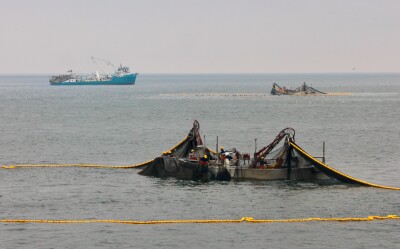I was having a conversation with someone the other day about China's one-child policy. He was saying, essentially, that the ramifications for not following the policy are so steep that only the richest Chinese families can afford to have more than one child, and the rest of the people live in fear of being jailed, fined beyond their means or the unmentionably worse.
The problem is that China uses the stick instead of the carrot to sway its citizens to comply. Instead of creating an incentive for the people to follow the policy, it simply punishes them for not following it. We manage fisheries (and many industries) the same way. Perhaps at one time it seemed justified to flail fleets with drastic measures. But we now live in a time of primarily flourishing fisheries.
It seems the species that still need some work are the only ones that get any press. I saw a headline this week, "Kings left out of Alaska's salmon boom." Four species are going like gangbusters, and we can only focus on the one that isn't. What gives? I'll tell you, it's the stick.
What this industry needs is incentives. With the right motivation, we can keep fishermen fishing for a real living wage while keeping the fisheries within acceptable levels of biomass and bycatch.
Instead of forcing fishermen to buy into a single fishery through a quota system (imagining that they would be proper stewards of the resource if they were specifically invested in it — the fallacy there being the assumption that they weren't stewards of the resource already), why not create incentives for them to move from fishery to fishery, and therefore, always have a healthy stock to fish?
Reducing effort doesn't always bring back a species. Sometimes environmental conditions create or reinforce a stock's depletion. But if fishermen have some other fishery to fall back on, then the fishermen will have the best chance of surviving in the long term, and so will their stocks.
And more than anything, we must recognize that the ocean is a complicated place. If we are going to punish commercial fishermen for everything that happens there, then we all might as well get used to the taste of fish farmed in inland ponds. Bad press is fodder for endless lawsuits and legislation from private groups and business owners who seek to take advantage of the mainstream image and alienate fishermen even further.
Sport-fishing interests last week did just that and are petitioning to ban setnets in urban areas of Alaska and hand over more king salmon quotas to recreational fishermen. Fishermen across the country faced and are facing net bans as a result of sport fishing interests appealing ostensibly to conservationists but in reality are attempting to reallocate commercial catches to recreational fishermen. Where is the conservation in reallocation of the same fish? It's not about conservation. It's about perception.
National Fisherman, NOAA, the Alaska Seafood Marketing Institute and others are working to educate the public about what makes commercial fishing valuable to our national economy and to the health of its citizens as well as making the industry more user-friendly. Please join us for Profitable Harvest at Seattle's Pacific Marine Expo next Friday, Nov. 22, as we start to move this mission forward.






